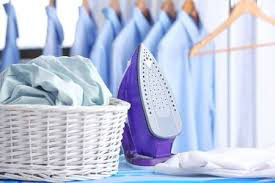Here's a step-by-step guide to starting a dry cleaning business in Nigeria:
Step 1: Research and Planning (Weeks 1-4)
1. Conduct market research: Identify target audience, competition, and demand.
2. Develop a business plan: Outline goals, strategies, and financial projections.
3. Choose a business name: Register with the Corporate Affairs Commission (CAC).
4. Obtain necessary licenses: Register with the National Environmental Standards and Regulations Enforcement Agency (NESREA) and local government.
Step 2: Setup and Equipment (Weeks 5-12)
1. Rent or lease a location: Ensure proximity to target market and accessibility.
2. Purchase equipment:
- Dry cleaning machines
- Washing machines
- Steam irons
- Pressing tables
- Racks and hangers
3. Source supplies:
- Cleaning solvents
- Detergents
- Spotting agents
- Packaging materials
4. Hire and train staff: Employ experienced dry cleaners and train new staff.
Step 3: Operations and Services (Weeks 13-24)
1. Develop service menu: Offer dry cleaning, laundry, alterations, and repairs.
2. Set prices competitively: Research market rates and adjust accordingly.
3. Establish operational processes:
- Customer intake and sorting
- Cleaning and pressing
- Quality control and packaging
- Delivery and pickup services
4. Implement customer service strategies: Ensure satisfaction and loyalty.
Step 4: Marketing and Promotion (Weeks 24-52)
1. Develop marketing strategy:
- Social media advertising
- Print and online directories
- Referral programs
- Partnerships with tailors and fashion designers
2. Create promotional materials:
- Business cards
- Flyers
- Banners
- Website
3. Host a grand opening event: Attract customers and generate buzz.
Initial Start-Up Costs (Estimated)
1. Equipment: ₦1.5 million - ₦3 million
2. Rent/lease: ₦500,000 - ₦1 million (per annum)
3. Supplies: ₦200,000 - ₦500,000 (initial stock)
4. Staffing: ₦500,000 - ₦1 million (initial salaries)
5. Marketing: ₦200,000 - ₦500,000 (initial campaign)
Ongoing Expenses
1. Equipment maintenance
2. Supplies and consumables
3. Staff salaries and benefits
4. Marketing and advertising
5. Rent/lease and utilities
Key Regulations and Associations
1. National Environmental Standards and Regulations Enforcement Agency (NESREA)
2. Nigerian Textile and Garment Workers Union (NTGWU)
3. Lagos State Ministry of Environment (LSMOE)
Additional Tips
1. Ensure proper waste disposal and environmental sustainability.
2. Invest in staff training and development.
3. Monitor market trends and adjust services accordingly.
4. Maintain high-quality services and customer satisfaction.
Please note that these estimates and guidelines are approximate and may vary depending on location, market conditions, and other factors.
For the workability of this feasibility study sample contact us for more professional support at
Fibrots mall adjacent Yaad Compass Limited Opeoluwa Oke Ata Abeokuta Ogun State Nigeria
Our contacts
08026879624
09168838622
Best regards
For StoneBridge Marketing Communications

Comments
Post a Comment